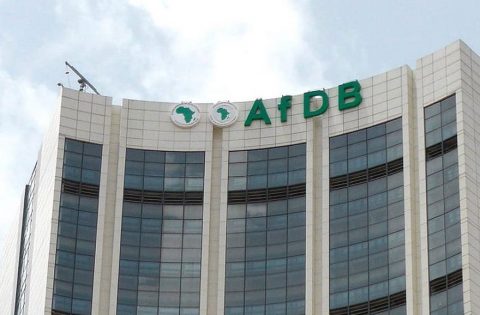Moremong Harps On Bankable Projects In Africa
African News, Business News Wednesday, August 31st, 2022
(AFRICAN EXAMINER) – Ms. Tshepidi Moremong, the Chief Operating Officer of Africa50, a Pan-African infrastructure investment platform, has expressed optimism over the availability of a number of bankable projects in Africa.
Ms. Moremong made the observation during a webinar organized recently by the African Development Bank (AfDB) and the Japan International Cooperation Agency (JICA).
The online event was held in the run-up to the eighth Tokyo International Conference on African Development (TICAD-8), which was held in Tunisia from 27-28 of August, under theme, “Private Sector Infrastructure Development Opportunities in Africa”.
She said Africa50’s robust pipeline in its priority sectors which include energy, transportation, ports, bridges, ICT, health and education, is ample proof that the continent has bankable projects.
According to her, the group’s experienced investment team works closely with development finance institutions and commercial banks, to ensure that their bankable projects continued.
She gave the example of Kigali Innovation City, a technology village that has broken the mound in terms of innovation. Rwanda, an agriculture based-economy, sees diversification of its sectors as critical.
“The success of this project is due to political will and capacity from both sponsors – Rwanda’s Development Board and investors”, she said.
Ms. Moremong also noted that the parties had robust discussions on the allocation of risk, one of the major investment hurdles, adding that other general obstacles cited include limited deal pipelines, weak feasibility studies, technical studies and business plans, and delays in obtaining licenses.
She is a seasoned senior executive who has held several leadership positions, including as an Investment Executive at Aureos Capital and Vice President at Renaissance Capital.
The panel session of the webinar featured Rami Ghandour (Metito), Vuyo Hlompho Ntoi (African Infrastructure Investment Managers) and Yoshio Kushiya (Sumitomo Corporation). They were joined by representatives of leading development finance institutions – JICA’s Shohei Hara, Mike Salawou from the AfDB and European Bank for Reconstruction and Development director, Sue Barrett.
The panelists shared perspectives, success stories and the challenges they faced to plug Africa’s estimated $67-107 billion annual infrastructure gap. The Chief Executive Officer (CEO) of Africa Infrastructure Development Association, Vivek Mittal, moderated the discussion.
Mittal noted that four African countries, Kenya, South Africa, Ghana and Nigeria accounted for the majority of private sector investment interest over the past two years.
He said digital activity in transportation and electricity received the highest interest, adding that urban sanitation, a key infrastructure building block – lagged.
“Projects take too long – 8-10 years in Africa,” he stressed, adding that slow development of local talent was another drawback.
Similarly, AfDB’s Vice President for the Private Sector, Infrastructure and Industrialization, Solomon Quaynor said Africa received its highest proportion of private sector investment in infrastructure in 2020, sending an important signal to governments and investors.
Quaynor also noted that the greater private sector investment came as most African governments contended with the Covid-19 pandemic, limited fiscal space and high debt-to-GDP ratios.
“Private sector investment into Africa’s infrastructure rose to $19 billion in 2020, representing 23 percent, the highest since 2016. This counter-cyclical role played by the private sector shows the importance of its growing role in infrastructure financing in Africa.
“We encourage JICA and JBIC to consider supporting this facility with concessional funds and grants. We also encourage Japanese private sector companies to contribute patient commercial capital to ensure that green infrastructure projects of scale are developed with speed in Africa”, he added.
In opening remarks, Keichiro Nakazawa, Senior Vice President of the Japan International Cooperation Agency, said the discussion would focus on growth prospects for African countries and the role of the private sector in providing high-quality, sustainable infrastructure.
The AfDB, the continent’s leading financier of infrastructure, has concluded in July 2022 a major public-private partnership transport infrastructure project in Kenya, the Nairobi-Nakuru-Mau Summit road constructed under a Public Private Partnership (PPP) agreement, the first PPP road project in Kenya with an investment of $150 million which JICA is also considering supporting.
Salawo, a representative of Bank at the webinar said: “We would like to partner with JICA to do more”, adding noting at the same time that the AfDB, earlier this year, co-financed the Nador West Med Port Project in Morocco with the European Bank of Reconstruction and Development.
Shohei Hara said JICA’s long history working with governments would need to give way to a mind shift as they looked to greater participation in private sector-financed infrastructure. “Governments have to change their mindsets, as well as ourselves”, he stressed.
He also noted the role of multilateral partners such as the AfDB in mitigating risks such as foreign exchange, political, regulatory, policy and payment obligations.
“We encourage JICA and JBIC to consider supporting this facility with concessional funds and grants. We also encourage Japanese private sector companies to contribute patient commercial capital to ensure that green infrastructure projects of scale are developed with speed in Africa,” Quaynor said.
Related Posts
Short URL: https://www.africanexaminer.com/?p=80415






















